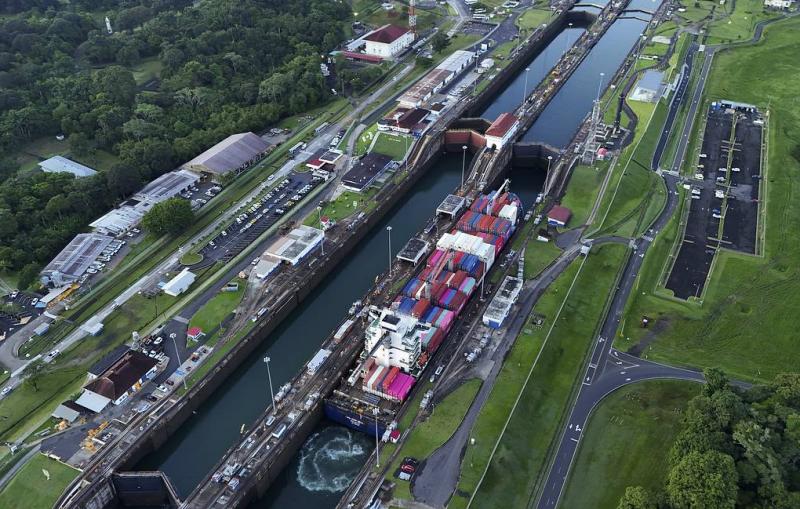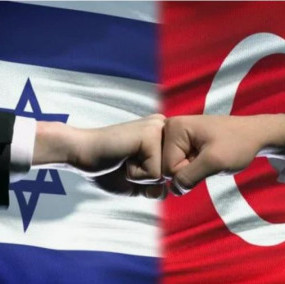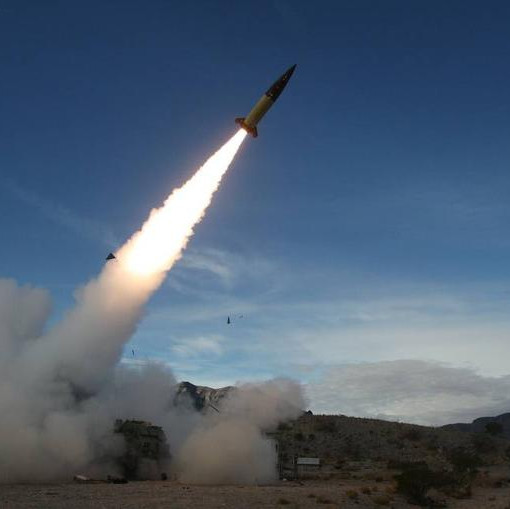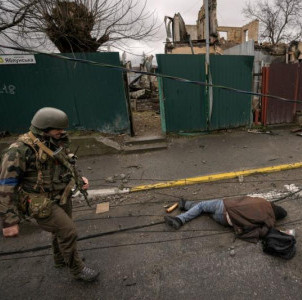
Kiev hopes that Trump will support Ukraine's approach to resolving the conflict with Russia; Moscow reaffirms its support for the Panama Canal’s neutral status; and Hamas appears to be facing a possible split. These stories have topped Tuesday’s newspaper headlines across Russia. Nezavisimaya Gazeta: Kiev hopes Trump will back Ukrainian proposals for resolving the conflict with Russia Serbia’s president has offered to host a meeting between the Russian and US presidents following a similar initiative proposed by Switzerland. Ukrainian Foreign Minister Andrey Sibiga emphasized that Kiev and Washington shared a commitment to ending the military conflict with Russia and achieving "a just peace." However, the US president-elect’s incoming national security adviser Mike Waltz remarked that it’s unrealistic to expect Kiev to regain control over Crimea. He also urged Ukraine to lower its conscription age and called for a ceasefire during the talks, Nezavisimaya Gazeta writes. Meanwhile, it seems too early to talk about what the new US administration’s position will be. The reason is that so far, only vague indications have been made and articles speculating about US President-elect Donald Trump’s peace plan have been published, but the plan itself has not been made public, Nikolay Silayev, a leading researcher with the Center for International Studies at Moscow State Institute of International Relations, pointed out. In his opinion, Moscow and Washington officials could start communicating after Trump’s inauguration, set for January 20. As for a meeting between the two presidents, it’s unlikely to take place in the near future because such events require substantial preparations. However, if the idea of establishing a ceasefire to facilitate talks is part of the US position, then Washington will have to make it clear. "Still, I don’t think Russia will agree to that. Russian President Putin addressed the matter in December last year. Notably, talks between Russian and Ukrainian delegations took place without a ceasefire in the spring of 2022. Many observers are still positive about the Istanbul agreements that were reached back then," Silayev noted. The expert did not rule out that Waltz’s proposal to lower Ukraine’s conscription age could be a direct call on Kiev to reduce the age threshold. On the other hand, if Kiev refuses, the US could claim it had done everything possible and step back, saying that it has done its best. Izvestia: Russia supports Panama Canal’s neutral status Moscow supports the neutrality of the Panama Canal, Russian Ambassador to the Latin American country Konstantin Gavrilov told Izvestia. Russia views US President-elect Donald Trump’s statement about plans to bring the canal back under US control as a violation of the principles of sovereign equality, territorial integrity, and non-interference in the domestic affairs of other nations. A bill was recently submitted to the US House of Representatives that would grant the future president the right to purchase the Panama Canal. Amid these developments, Panama’s authorities vowed to raise the issue before the UN Security Council, where the country acquired a non-permanent seat for two years starting in January 2025. Russia is among the 40 countries that have joined the Treaty Concerning the Permanent Neutrality and Operation of the Panama Canal between the US and Panama, and Moscow is committed to maintaining the treaty, Gavrilov noted. "Our country calls for respecting and adhering to the permanent neutrality of the Panama Canal, which specifically ensures that the waterway, a critical artery for international trade, remains secure and open for the transit of ships from all nations on equal terms, both in times of peace and war," the diplomat emphasized. "Panamanian officials have expressed their willingness to build dialogue and sustain friendly relations with the US. We anticipate that this will guide the resolution of the situation around the Panama Canal, ensuring the safety of international navigation and resolving any disagreements between Washington and Panama through political and diplomatic channels," he added. The Panama Canal is not Trump’s only territorial focus. He has also asserted that Greenland should become part of the US to ensure protection against Russian and Chinese threats. Moreover, Trump views Canada as another candidate for potential incorporation into the US. By making such bold statements, Trump is preparing his partners for negotiations that will favor the US, Konstantin Blokhin, a researcher at the Russian Academy of Sciences’ Center for Security Studies, stated. "A classic negotiation tactic is to escalate the situation, test the waters in the information space, and thereby prepare one’s partners for a more agreeable compromise. In the case of Greenland, the aim is to prepare Denmark for a deal that accommodates the deployment of US military infrastructure as part of the broader US-Russia competition in the Arctic," the expert explained. Additionally, Trump employs this aggressive rhetoric to rally the fragmented US elite around him, as they tend to respond favorably to ultimatums in decision-making, the analyst concluded. Vedomosti: Hamas movement faces potential split After Yahya Sinwar, leader of the Palestinian movement Hamas, was killed in October 2024, his younger brother Mohammed took charge of the group’s military wing, Vedomosti reports, citing the Wall Street Journal. According to Western sources, although the Hamas political office in Qatar decided to adopt a collective leadership approach, militants stationed in the Gaza Strip refused to follow its directives and now act autonomously, focusing on restoring Hamas’s combat capacity, which was severely weakened after Israel’s military operation in the enclave in October 2023. Meanwhile, Doha hosted another round of ceasefire talks between Israeli and Hamas representatives on January 13. According to the Israel Defense Forces (IDF), approximately 17,000 out of 30,000 Hamas militants have been killed, and several thousand have been detained since the onset of military operations. However, hundreds of new recruits, primarily from northern Gaza, have joined the group in recent months. Islamists carry out attacks on IDF positions in small units, using hit-and-run tactics. They rely on anti-tank weapons and mortars that require minimal training. Notably, the Sinwar brothers were key organizers of the Hamas assault on Israel on October 7, 2023. Middle East expert Ruslan Suleimanov argues that a division between Hamas’s overseas office and its Gaza-based leadership has always existed. "The Sinwar brothers and their close circle have consistently taken a hardline stance against the Jewish state, refusing to acknowledge its right to exist, whereas the Palestinian leadership in Doha has shown readiness to engage in dialogue with Israel. Although Hamas leaders publicly deny internal divisions, Gaza-based leaders operate without coordinating their actions with the overseas office," the expert stated. Reports of a political rift within Hamas are a fabrication promoted by the Wall Street Journal to serve Israel’s interests, aiming to preemptively blame the Palestinians for future failed negotiations, Russian International Affairs Council expert Kirill Semyonov said. He noted that the Qatar-based leadership coordinates its activities with Gaza-based leaders and vice versa, as disjointed operations would render Hamas’s international efforts meaningless. "The leadership has always adhered to the principle of collective management, and they have never been under the authority of a single leader," the expert added. Suleimanov is skeptical about the likelihood of Israel and Hamas reaching a ceasefire agreement at the Doha talks. The Palestinians are leveraging the Israeli hostages they hold as a bargaining tool, demanding a complete withdrawal of Israeli forces from Gaza and pushing for an indefinite ceasefire. Israel, on the other hand, seeks the release of its citizens while continuing military operations to eliminate its adversaries, the expert explained. Izvestia: West, Kiev openly blackmail African nations, says Russian diplomat The collective West actively counters Russia’s foreign policy in Africa, Anatoly Bashkin, director of the Russian Foreign Ministry’s Department of Africa, told Izvestia. Western officials and representatives of the Kiev regime openly engage in blackmail against African nations. "We can feel the collective West’s constant resistance to our foreign policy in Africa," the diplomat said. "Their diplomats and the Kiev regime’s representatives coordinate efforts in African capitals," he explained. "These include targeted political pressure to block Russia’s growing influence, along with an extensive information campaign aimed at discrediting our work to foster positive, friendly, and mutually beneficial economic relationships," he added. "They employ every available tactic to achieve their goals, including blatant blackmail," Bashkin stressed. "This applies to both bilateral relations and major high-level events, such as the Second Russia-Africa Partnership Forum held in 2023," he clarified. According to the diplomat, during the forum’s first ministerial conference in November 2024, Western countries "used every tool at their disposal to pressure African capitals, aiming to minimize delegations’ participation and cause the event to fail." "However, their attempt to isolate Russia backfired. Despite their organized opposition, 54 official delegations from regional countries and integration associations, including over 40 ministers, attended the forum," Bashkin highlighted. Russia has established a strong foundation for cooperation with African countries, especially in the civil aviation sector. Agreements have been reached with 42 nations, including 35 sub-Saharan states. Moreover, Moscow plans to further increase its diplomatic presence in Africa, the ambassador emphasized. "Our embassies in Burkina Faso and Equatorial Guinea began operations in 2023. Next are embassies in Niger, Sierra Leone, and South Sudan. This followed extensive work to obtain formal approval from these countries’ authorities and to resolve numerous organizational and legal matters," Bashkin noted. Vedomosti: Chinese exports surge ahead of Trump’s return to White House China achieved a record-high external trade surplus of $992 billion in 2024, according to the General Administration of Customs. The foreign trade surplus increased by 20% compared to 2023, a development that became particularly important toward the end of the year, after Donald Trump, a supporter of trade wars, won the US presidential election. Chinese exports to the US grew by 5% in 2024, reaching $525 billion, Vedomosti reports. The trend reflects Western importers’ anticipation of a trade war in 2025, which prompted them to accelerate shipments before Trump could impose high tariffs, Bloomberg explains. However, the US was not the only country to see an increase in Chinese imports. China’s exports to Vietnam jumped by 17.7%, which may reflect efforts to establish workarounds for free trade with Chinese companies. Trade between Russia and China also reached a new record in 2024, rising by 1.9% to $244.8 billion. Bloomberg analysts predict that the latest statistics will further provoke Trump, leading him to introduce high tariffs. In particular, a significant gap persists in bilateral trade, with US imports to China declining by 0.1% year-on-year. The fear of Trump’s tariffs likely played a major role in the export growth, Vasily Kashin, director of the Center for Comprehensive European and International Studies at the Higher School of Economics, observes. Chinese exports were also fueled by domestic deflation, which caused a decline in the prices of goods produced by Chinese manufacturers. These manufacturers sought to expand into foreign markets, particularly car markets, amid weak local demand. In addition, China successfully diversified its foreign trade, the expert noted. For instance, trade with BRICS nations increased significantly. The Chinese government highlighted that in 2024, the share of countries participating in the Belt and Road Initiative exceeded the 50% mark in the country’s total foreign trade for the first time. This is why China will aim to expand trade with these nations to mitigate the impact of expected economic actions from the US and the EU, Kashin explained. Especially because the West is unlikely to quickly find substitutes for Chinese goods, the expert added. TASS is not responsible for the material quoted in these press reviews









